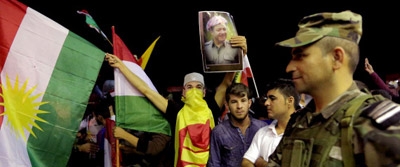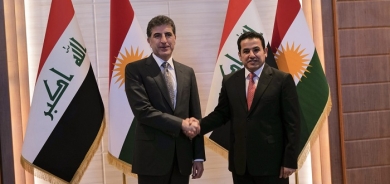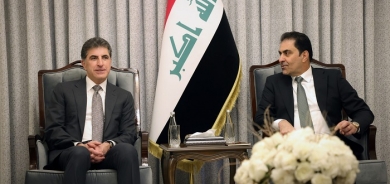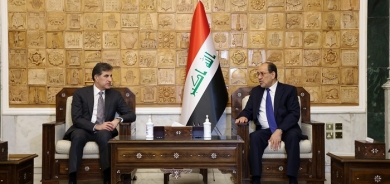For the Kurds, No Friends but the Americans
November 4, 2014
From Media

"No friends but the Americans," said Sultan Muslim, a 35-year-old Kurdish woman from the by-now-legendary city of Kobani, following the eleventh-hour airstrikes by US warplanes of the ISIS terrorists in and around Kobani that may have saved the city from falling into enemy hands. Sultan Muslim fled Kobani and barely made it across the border to Suruc, where she gave birth to her seventh child, a boy. She named her newborn "Obama"... "in symbolic gratitude for the US assistance to save Kobani." "Because of his help maybe we will get rid of this cruelty and get back to our homes," said the grateful Kurdish mother.
It used to be said that "the Kurds have no friends but the mountains." Can we now, perhaps, add America to the mountains as the Kurds' friend, too? We are more than sure of what a reliable friend the mountains have been in protecting the Kurds from enemy invading armies throughout history, but whether America will prove to be a reliable friend is still a work-in-progress. While it is true that the Kurds have many friends who have lent their moral and material support to their cause, given the totality of the Kurdish historical experience and their struggle for survival, one can say that Sultan Muslim may have spoken the truth.
The hint of any relationship between the Kurds and the US goes back to President Woodrow Wilson's Fourteen Points statement in 1918 following the dissolution of the Ottoman Empire. Even though the Kurds were not mentioned by name, President Wilson clearly recognized their right to "autonomous development" when he stated in Article 12 of the historic document, "The Turkish portion of the present Ottoman Empire should be assured a secure sovereignty, but the other nationalities which are now under Turkish rule should be assured an undoubted security of life and an absolutely unmolested opportunity of autonomous development."
The Kurds were denied their "autonomous development" by Britain and France, when they parceled Kurdistan out, as if it were their own property, and gave it as a gift to its current occupiers. In drawing the new map of the Middle East, the architects of the Kurdish tragedy, showed a total disregard for the rights of the Kurdish people, as envisioned by President Wilson.
The next contact between the Kurds and the US, which can only be described as a fiasco, dates back to 1975, when the US suddenly withdrew its support of the Kurds at the height of their fight for autonomy in Iraq, leading to a serious setback in their quest for independence.
The Kurds will always be grateful to America for the imposition of the no-fly zone in Iraqi-occupied Kurdistan in 1991 until the liberation of Iraq in 2003. For many years, American war planes protected the Kurds in the no-fly "safe haven" against attempts by Saddam to reoccupy the Kurdish region of Iraq. The American pilots who flew those missions were just as protective of the Kurds as the Peshmerga. We honor them by calling them "Peshmerga," the most sacred word for the Kurdish people, just as we honor their comrades who are in the skies of Kurdistan today protecting the Kurds.
The recognition by the US of the Kurds in Syrian-occupied Kurdistan as an ally against ISIS is a positive step but must be followed by US recognition of the Kurds in Syria and elsewhere as an oppressed people with legitimate national rights and aspirations.
The people defending Kobani and other Kurdish cities, towns, and villages against a brutal force that is threatening the world are not terrorists, as some are labeling them, but freedom fighters battling the forces of darkness on behalf of the rest of the world.
The State Department should base its policies towards the Kurds not on the lies which their enemies have been telling about them for decades but on the truth on the ground and as spoken by the US military personnel, from private to general, who have been to Kurdistan and worked with the Kurds.
The US should not only not block Kurdish independence but embrace it. A Kurdish state can be a beacon of freedom, harmony, peaceful co-existence, and democracy for the region. Not only that, but it can also be an economic power, for, according to some recent studies, South Kurdistan has some of the biggest oil and natural gas reserves in the world.
With all its enemies around the world, it is time the US recognized the right of its most reliable friends and allies in the Middle East to an independent state starting with the Kurdish region of the fast-disintegrating Iraq so it would have a strong, democratic, prosperous and stable state in the region it can count on.











